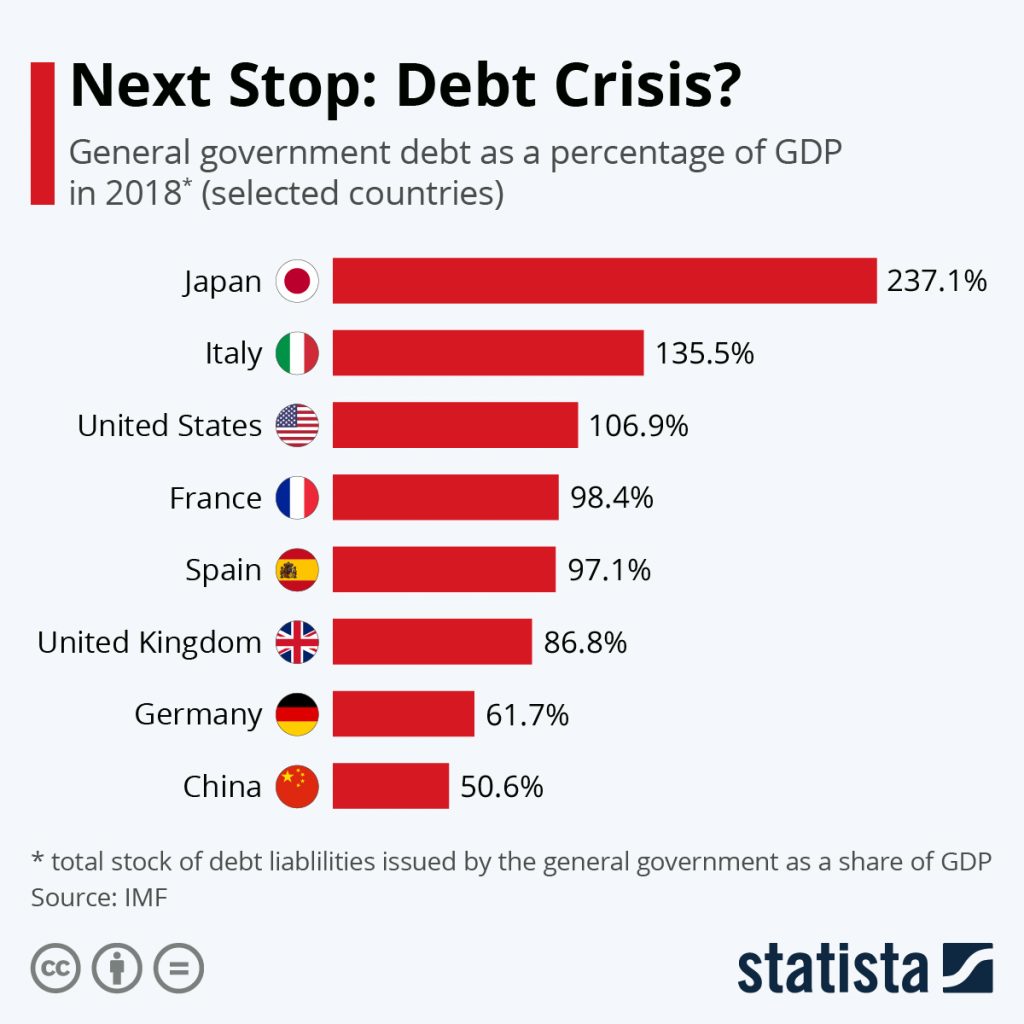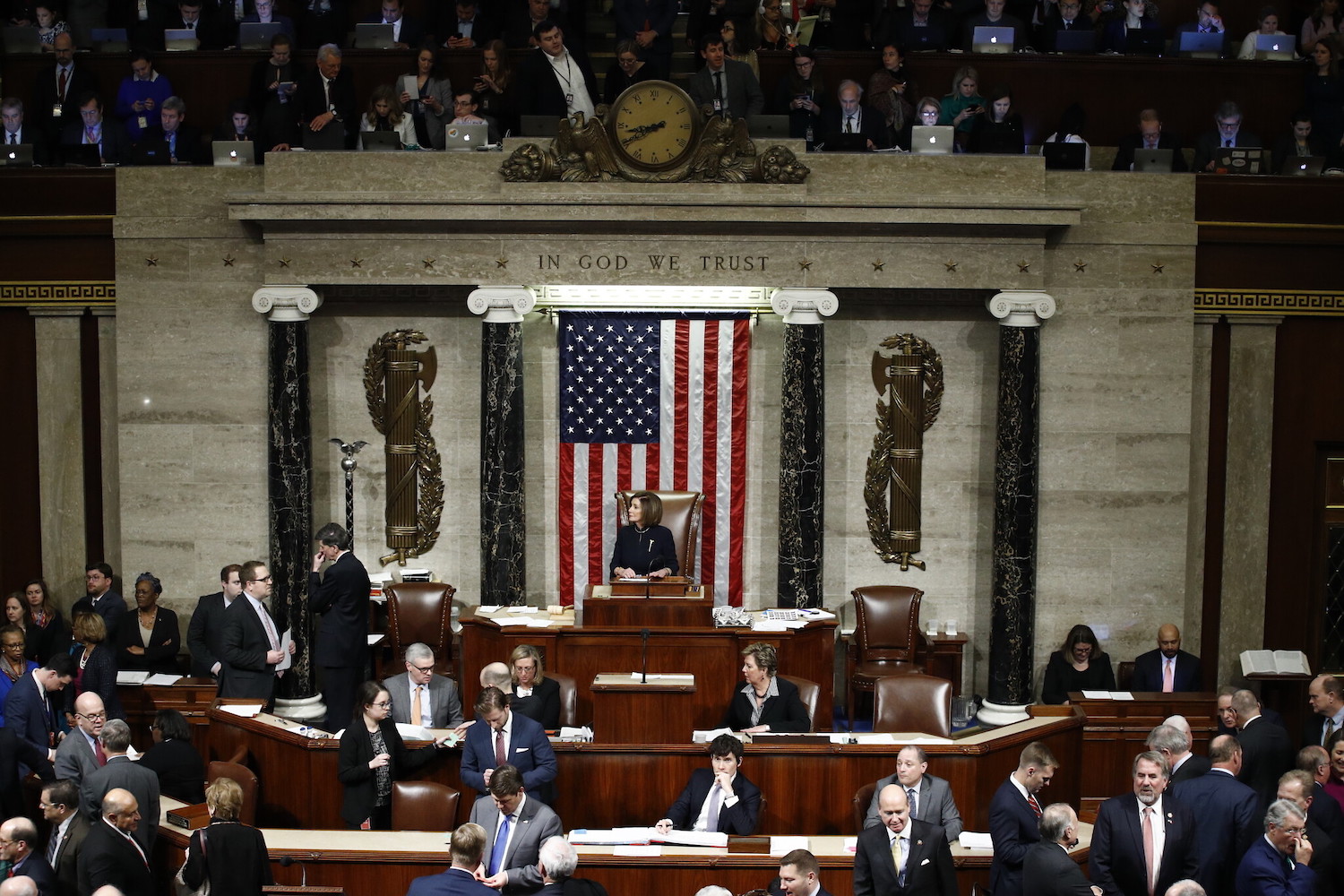Numbered are the certainties in this coronavirus pandemic. Among these are unprecedented levels of debt.
Even before the coronavirus struck the world, many nations have been submerged in a mountain of debt, inspecting the data collected in 2018 by the International Monetary Fund (IMF) would reveal.
Displayed above are selected countries and the share of their national debt relative to their gross domestic product (GDP), also known as the debt-to-GDP ratio.
The debt-to-GDP ratio is a metric used to assess if a country is capable of paying its current and future debts. If it is low, then a country’s economic output is sufficient to pay off the debt it incurs. A high value, on the other hand, might put this capability into question.
From our partners:
Of course, it is important to note that a country’s financial condition is not solely determined by debt. Government bonds and other financial assets, for instance, can offset some of these debts.
Unbounded
Japan records the highest debt-to-GDP ratio in 2018, at a staggering 237.1%. This means that the national debt is more than twice the size of its economy.
In order to dampen financial fallout due to the pandemic, the Bank of Japan (BOJ) launched a $1 trillion stimulus package last week. This Monday, this monetary stimulus was further expanded.
Some of the measures included in this expansion include removing the cap on the amount of bonds that can be purchased by the BOJ and offering a 0.1% interest rate in its loan policy to encourage lending amongst financial institutions.
As written by several authors, this cap removal will only be symbolic if the country will continue to spend below its annual target as it has been doing the previous years.
This monetary expansion improved stock values this Monday in the Asia Pacific. While some optimism may have been regained, we have to wait it out and see if these steps taken by Japan will be substantial enough to stabilise its economy.
Spending boosts
The United States is also among the countries with high debt-to-GDP ratios as of 2018 at 106.9%. This figure is expected to increase significantly, considering the recent approval of a massive $2 trillion liquidity boost.
Even China, which is one of the countries with the lowest debt-to-GDP ratios at 50.6% also recently approved a $226 billion stimulus.
With strict social distancing measures all over the world, economic activity is stunted. In this kind of crisis situation, it is an expected move for governments to increase their spending in order to make up for the lost output.
Rift
However, this is not a step that every country can just take. Take France, Spain and Italy which are among the hardest-hit countries by the COVID-19 pandemic. As we can see in the chart above, these countries already have large debts before COVID-19.
With these countries belonging to the political project that is the European Union (EU), this matter became the highlight of the recent EU roundtables. A ‘coronabond,’ which will mutualise COVID-19 expenditure across the EU is being put forward.
For the countries in southern Europe — led by France, Italy, and Spain — who took the brunt of the pandemic, the issuance of such a policy will be the expression of EU solidarity, which some would think is the point of the European project to begin with.
For countries in northern Europe like the Netherlands and Germany, however, contentions about this proposition were raised, with fears that such mutualisation will pave the way to shouldering the existing debts of the virtually-bankrupt Italy in the form of external bonds in a slippery slope fashion.
This North-South divide has repeatedly occurred in the past and continues to be the biggest hurdle to a true fiscal union within the EU. However, unlike in the past, millions of lives are at stake.
With the tensions within the Union nearing a breaking point, a continued leaning towards austerity might just hammer in this sundering. Hopefully, the Union will be able to come up with a solution that can ease this dispute.














